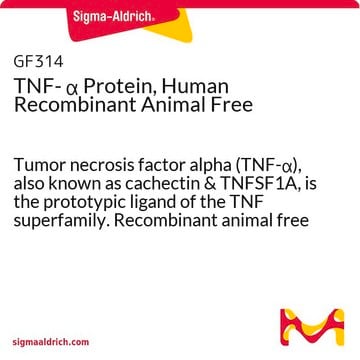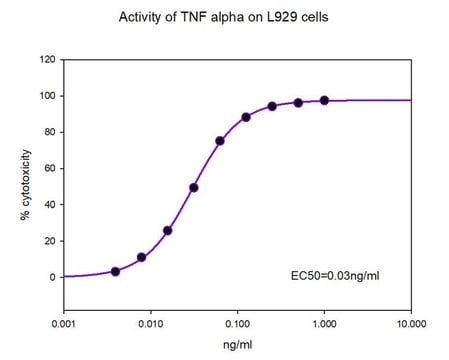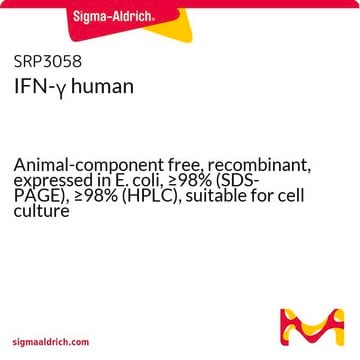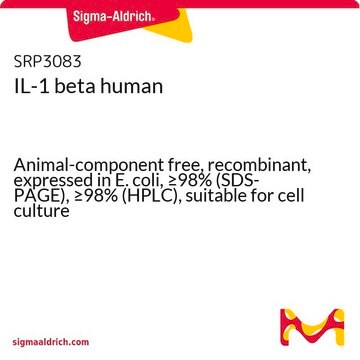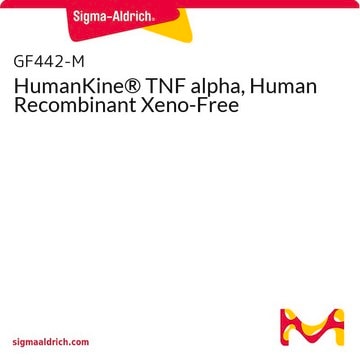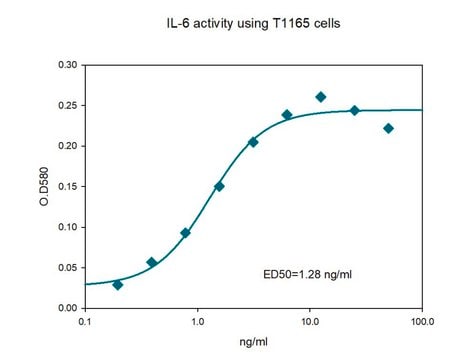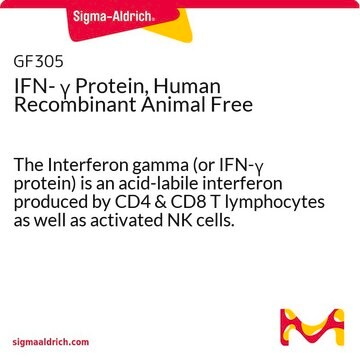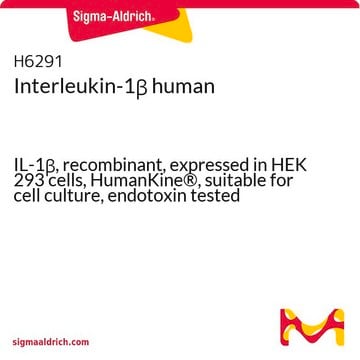654205-M
TNF-α, Mensch, rekombinant, E. coli
Synonym(e):
TNF-α, Mensch, rekombinant, E. coli, rhTNF-α, rh-Cachectin, Tumor-Nekrose-Faktor-α
About This Item
Empfohlene Produkte
Biologische Quelle
human
Qualitätsniveau
Rekombinant
expressed in E. coli
Beschreibung
RTECS - MT6435000
Assay
≥95% (SDS-PAGE)
Form
lyophilized
Hersteller/Markenname
Calbiochem®
Lagerbedingungen
OK to freeze
Verunreinigungen
≤0.1 ng/μg Endotoxin (ng/μg TNF-α)
Löslichkeit
distilled water: 0.1—1 mg/mL
Lagertemp.
−70°C
Angaben zum Gen
human ... TNF(7124)
Allgemeine Beschreibung
Anwendung
Biochem./physiol. Wirkung
Warnhinweis
Rekonstituierung
Sonstige Hinweise
Tsuchida, H., et al. 1995. J. Immunol. 154, 2403.
Westwick, J.K., et al. 1995. J. Biol. Chem. 270, 22689.
Polunovsky, V.A., et al. 1994. Exp. Cell Res.214, 584.
Koide, M., et al. 1993. FEBS Lett.318, 213.
Vilcek, J., and Lee, T.H. 1991. J. Biol. Chem.266, 7313.
Rechtliche Hinweise
Lagerklassenschlüssel
12 - Non Combustible Liquids
WGK
WGK 3
Flammpunkt (°F)
Not applicable
Flammpunkt (°C)
Not applicable
Analysenzertifikate (COA)
Suchen Sie nach Analysenzertifikate (COA), indem Sie die Lot-/Chargennummer des Produkts eingeben. Lot- und Chargennummern sind auf dem Produktetikett hinter den Wörtern ‘Lot’ oder ‘Batch’ (Lot oder Charge) zu finden.
Besitzen Sie dieses Produkt bereits?
In der Dokumentenbibliothek finden Sie die Dokumentation zu den Produkten, die Sie kürzlich erworben haben.
Kunden haben sich ebenfalls angesehen
Unser Team von Wissenschaftlern verfügt über Erfahrung in allen Forschungsbereichen einschließlich Life Science, Materialwissenschaften, chemischer Synthese, Chromatographie, Analytik und vielen mehr..
Setzen Sie sich mit dem technischen Dienst in Verbindung.